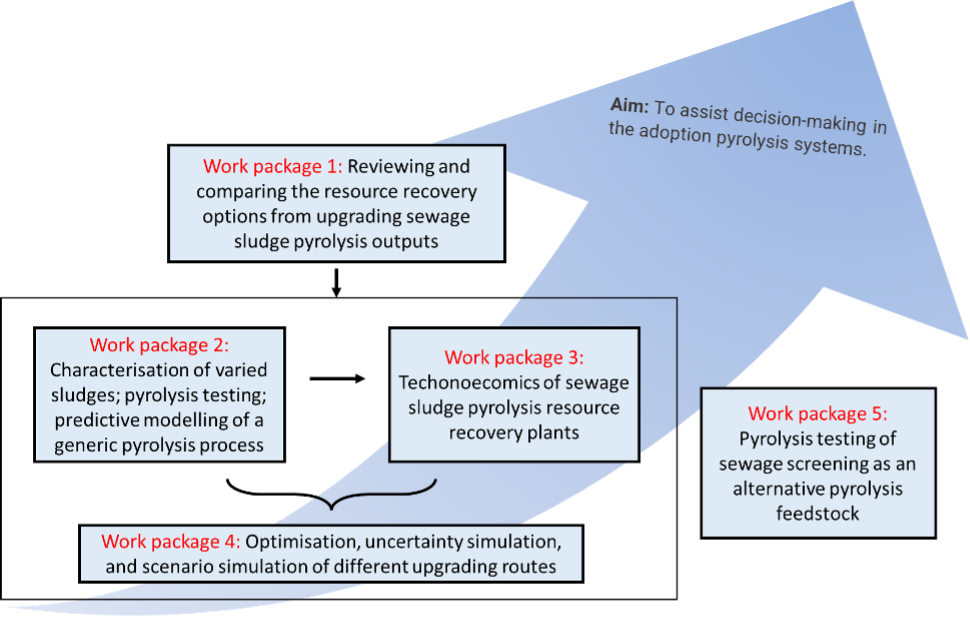Meet Siqi Xu
Email: [email protected]
Academic and Industrial affiliations: Cranfield University, Thames Water
Title of research project: Resource and energy recovery from sewage sludge by optimised advanced thermal conversion process control

Rising uncertainties around the sludge-to-land route can result in disruptions to the current landscape of sludge disposal in the UK, and this is due to the concerns on harmful substances contained by sewage sludge. Pyrolysis is a promising sludge treatment method that provides new solutions to this complex situation, as harmful substances are eliminated at high temperature and the by-products from pyrolysis can be utilised for energy and resource recovery.
This project aims to assist the water industry’s decision-making of the adoption pyrolysis systems through pyrolysis testing, pyrolysis modelling, and techno-economics.
Five work packages are proposed. The first work package consists of reviewing and comparing the resource recovery options from sewage sludge pyrolysis. The second work package includes characterisation of varied sludges, pyrolysis testing, and the development of a predictive model for a generic pyrolysis process. The third work package involves the technoeconomics of the sewage sludge pyrolysis resource recovery plants, and the fourth work package involves comparing the different recovery routes using uncertainty and scenario simulation. The fifth work package consists of pyrolysis testing of sewage screenings as an alternative feedstock.
To date, the first work package presented that the potential recovery options from sewage sludge pyrolysis outputs are the upgrading of the evolved non-condensable gas, the condensed liquids, the char, or the whole vapour phase. The different potential products were compared in terms of specific yield, specific revenue, and other selection criteria including product potential, market assessment, and synergy within WWTP. The comparison revealed that the products with the least upgrading duty are the most desirable if to maximise gross profit.

